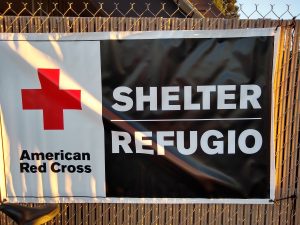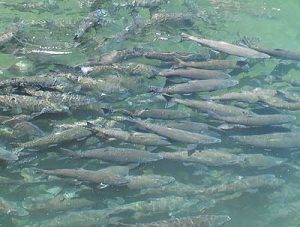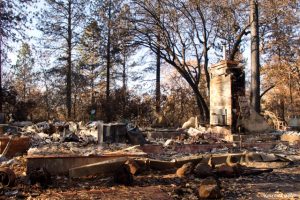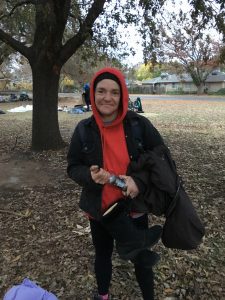
The sky was growing dark by the time I checked in at the Red Cross station on a recent afternoon, in front of the Silver Dollar Fairgrounds in Chico. Two volunteers in red vests greeted me and welcomed me to the shelter for Camp Fire evacuees.
Red Cross Communications Director Stephen Walsh offered to show me around. On that night there were about 700 people staying at the shelter, with some living in their recreational vehicles in the parking lot, some living in a tent city behind the RVs and some living in the three dormitories. All six of the Red Cross shelters that had been opened right after the fire had by then been consolidated to this one.



